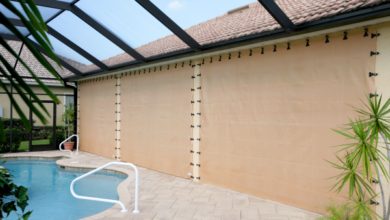
The Average Cost of Solar Panels in Washington State, Explained
Did you know that in 2020, the average home used around 893 kWh per month? If you are a resident of the state of Washington, and are debating if it makes financial sense to make the switch to solar in order to save money, you are in the right place. We have put together this guide to share the average cost of solar panels in Washington state.
Read on to learn more.
Table of Contents
Installation Cost By Size
The truth is that the total solar panel cost for your home will depend on several factors. Such as how much power you tend to use each month, the type of panels you choose, how much sun your home receives, etc.
The size of the solar panel system is going to affect your installation costs. Usually, larger solar installations will have a lower cost per watt because you can purchase the panels at bulk rates. Here is an idea of what you can expect to pay based on the size of the system you choose:
- 4kW – $8,945
- 5kW – $10,767
- 6kW – $12,312
- 7kW – $14,240
- 8kW – $16,428
- 9 kW – $17,822
- 10kW – $19,625
Keep in mind that the averages above are after tax credits in your area are applied. To get a better idea of the system size your home requires, we highly recommend doing a Google search for “solar installers near me.”
Other Factors That Affect Cost
Besides equipment and installation, there are also inspection costs, permitting costs that will influence the final price. One major equipment difference is the type of solar panels you end up buying. The two main types used for residential installations are polycrystalline or monocrystalline.
A lot of people on a budget opt for polycrystalline panels because they are cheaper, but these are not as efficient, giving this option a lower efficiency rating. Monocrystalline panels are the more expensive option, but they tend to be more efficient than polycrystalline panels.
The quality of your installation is another factor that will make a difference in your cost. If you receive a quote that is just too good to be true and a lot lower than other quotes, be a bit wary and do your homework first. An installer that is undercharging might be using low quality equipment, or they are running their business on an unsustainable pricing model.
You want someone that is still in business in the next two to three decades because you will be relying on them if something goes wrong, or if you need to have a warranty repair. Make sure you get multiple solar quotes before making a final decision.
Your roof angle is going to be another factor. Some roof angles soak up the sun a lot better than others. On certain roofs, you will need a lot less panels to harness the power from the sun because of the way they are angled and they way the roof faces. For most owners, the ideal angle is a degree close to the latitude of the home on a roof that faces south.
Average Costs in Washington
The average solar panel cost in Washington state as of the writing of this post is around $2.93/W with a 5 kW system. Average installation for the entire system is around $12,000 to $16,000. This average cost is with the 26% Federal Investment Tax Credit (ITC) included.
In most areas of Washington, it is worth it to install solar panels in your home because the average cost of power in the state is around 11¢ per kilowatt-hour (kWh). When you do the math, this means that over 20 years you can save around $38,100 if you install a 5 kW solar system. These savings are if you were to pay for the entire system up front in cash.
If you have to finance your system, you will still save money, but your savings will depend on the interest rates you have to pay the finance company. If they are offering a zero interest promotion, then your savings will be around $38,000 depending on any finance fees they might charge.
One thing to keep in mind is that even if you have to finance your system, you are locking in your price. You won’t really have to worry about utility spikes and a fluctuating bill. Instead, you will have a monthly payment plan that will remain the same for the number of years that are in your contract.
Government Incentives
There is a federal tax credit that you can take advantage of to save a little bit of money. Like we mentioned earlier, there is an Investment Tax Credit (ITC) where you can claim 26% of what you paid for your install on your taxes.
As of the writing of this post, this tax credit is for any installations done by December 31, 2022. In 2023 the percentage goes down to 22% and in 2024 the credit is set to expire, unless Congress chooses to renew it.
In the state of Washington, there is also an extra savings. Currently, there is a tax exemption for solar power. Depending on your local sales tax rate, this can be a savings of 7%—10.5%.
Now You’re Familiar With the Cost of Solar Panels in Washington State
Now that you’ve learned the average cost of solar panels in Washington state, you can make an informed decision about switching to solar. Sometimes the solar panel cost is totally worth the investment, especially if you use a lot of power and don’t want to deal with price spikes from the utility company.
If our guide helped you out, we have more where this came from. Make sure you keep browsing the rest of this section for our latest guides.








